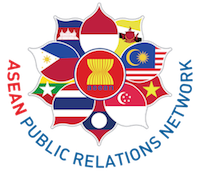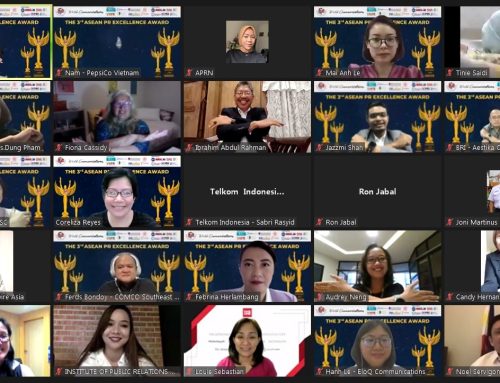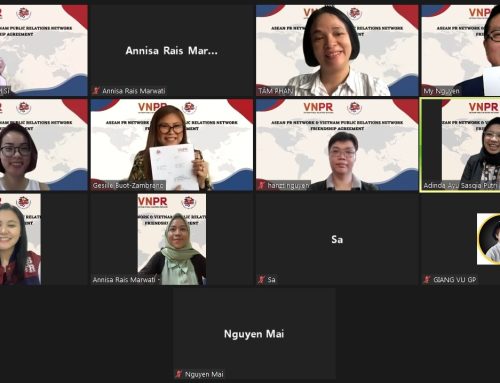The ASEAN Foundation helped catalyse the formation of a regional network for corporate social responsibility (CSR) called the ASEAN CSR Network or ACN wherein the ASEAN Foundation is one of the Board of Trustees. The ACN has been actively promoting CSR in the region.
One recent initiative of the ACN was holding the ASEAN Next-Gen Corporate Social Responsibility Forum on 3 – 7 February 2015 that gave exposure on the development of global CSR issues to business leaders, CSR and sustainability managers and team members, international and regional development experts, policy-makers and regulators, non-governmental organisations (NGOs), academia, and civil society leaders. Focused on finding “breakthroughs for inclusive and sustainable growth in ASEAN post-2015”, the Forum was held in Bali, Indonesia, with the Secretary-General of ASEAN, Mr. Le Luong Minh, and Indonesian Coordinating Minister for Human Development and Culture, Puan Maharani, as guests of honour. In the main Forum on 5 February 2015, addressing around 250 delegates, key stakeholders from public and private sectors, the Secretary-General of ASEAN emphasised the vital role of the business sector in helping achieve inclusive, equitable, and sustainable development in the region, reiterating the need to fulfil the provisions in the ASEAN’s Socio-Cultural Community Blueprint on ensuring that CSR is in the region’s corporate agenda. Puan Maharani spoke on the importance of partnerships between government and businesses in solving problems, especially at the community level.
The keynote speaker was delivered by Mr. John Elkington who is a world authority on corporate responsibility and sustainable development. He is also the Co-Founder and Executive Chairman of Volans, a future-focused business working at the intersection of the sustainability, entrepreneurship, and innovation movements. Mr. Elkington described CSR as the “art of the possible”, while stressing that we should constantly push the agenda and find breakthroughs to achieving a new way of doing business. He further said that we should not be limited by what is possible in today’s context, but instead, have a bold vision for achieving what is seemingly impossible. He cited examples of visionary business leaders who had embraced the CSR agenda, such as Interface founder Ray Anderson who was seen as ‘crazy’ by many when he first declared his Mission Zero plan and helped transform their business into truly sustainable organisations.
There were other side forums in addition to the main conference, which were the Master Class on CSR and Stakeholder Engagement delivered by Dr. Tima Bansal, the Canada Research Chair in Business Sustainability at the Ivey Business School at Western University (Ontario), on 3 February 2015, participated by around 40 participants, and a Business and Human Rights Consultation session on 4 February 2015 with over 100 participants. On 6 February 2015, workshop and working group meeting tackling the issues of sustainable agriculture, anti-corruption, and extractive sectors were held.
By the end of the week, it was concluded that sustainability should be jointly addressed by private sectors, government, and civil society. Sustainability is a collective action that needs complementary roles of private sectors, government, and civil society. Sustainability must be embedded in the corporate organisations’ global supply/value chain that entails developing partnerships with various stakeholders. National action plans on business and human rights are necessary to provide guidance to the business players to grow responsible business. In designing the national action plans, all stakeholders must joint efforts in a collective action that involve business sectors, government, civil society, and media.
The ASEAN Foundation had the opportunity to speak to Ewis Elsita Akhaho Taime, a youth participant from the Indonesia – Canada Youth Exchange Programme 2014 from Papua, Indonesia, saying that this event was very useful for young people to understand more about CSR and as a means for exposing them to new networks with companies and civil society organisations.
The Forum was organised by the ASEAN CSR Network in partnership with the Government of Canada through its Embassy in Jakarta, the Government of Sweden through its Embassy in Bangkok, and the ASEAN Foundation. Key support was received from the Japan – ASEAN Solidarity Fund, the United Kingdom’s Foreign and Commonwealth Office (UK FCO) Prosperity Fund, the Canada Fund for Local Initiatives (CFLI), and platinum sponsor by Intel.




